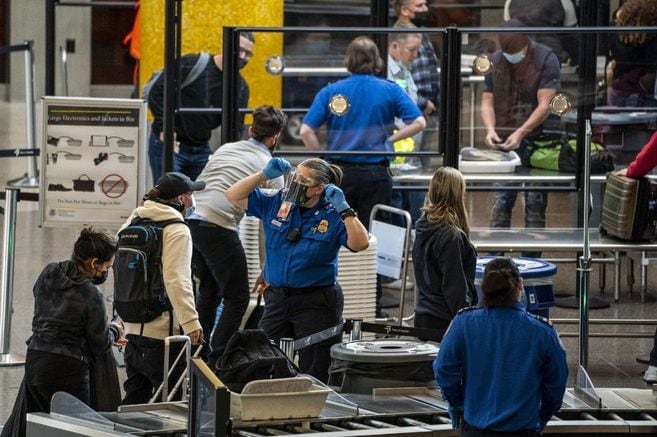
Featured news from the world
The U.S. Centers for Disease Control and Prevention asks you to evaluate your trip because of the high number of coronavirus cases.
Travel increases the likelihood of spreading and contracting COVID-19, so the U.S. Centers for Disease Control and Prevention (CDC) recommends delaying travel, for now, and staying in home to protect yourself and other people from viruses.
When not to travel?
- If one or more people at home are at higher risk of becoming seriously ill on account of COVID-19.
- If hospitals in your place of origin or destination have a high rate of infection.
- If on your travels you may have difficulty maintaining a distance of two meters from other people.
- If you or the people you visit have had contact with people you don’t live with.
- If you plan to attend a large social gathering or mass event, it would be best to reconsider your travel date.
Now, if your trip can’t wait, here’s the additional documentation to submit:
- A medical certificate proving that you have tested negative for coronavirus (COVID-19). The test must have been performed no later than 3 days before departure. Rapid PCR or Antigen tests are valid. The certificate, it should be noted, must match the data specified in your travel document.
- Passengers under the age of 2, U.S. military personnel, and passengers with a medical certificate with a positive test result for the coronavirus test issued no later than 90 days prior to departure must not present a negative test. In the case of those who tested positive, in addition to presenting the certificate indicating that it specifies “positive” or “detected”, they must present a letter issued by a health authority authorizing them to travel.
We recommend: Beware, if you travel to the US. UU. He must quarantine on arrival
During the trip take these steps to protect yourself:
- If vaccinated, wait 2 weeks after the second dose of the vaccine to travel.
- Check travel restrictions before you leave.
- Use a mouthpiece. These are mandatory on airplanes, buses, trains, and other means of public transportation in the United States, as well as at airports and stations. Also remember to pack extra masks, as you will be asked to change it on flights longer than two hours. Bring hand sanitizer (with at least 60% alcohol) and remember to wash frequently.
- Avoid congestion.
- Avoid touching your eyes, nose and mouth.
After traveling, remember:
Get a viral test 3 to 5 days after your trip. Stay home and respect the 7-day quarantine. If the test is not done, wait at home and do a strict 10-day quarantine.
You may be interested in: The United States is approaching 500,000 deaths from coronavirus